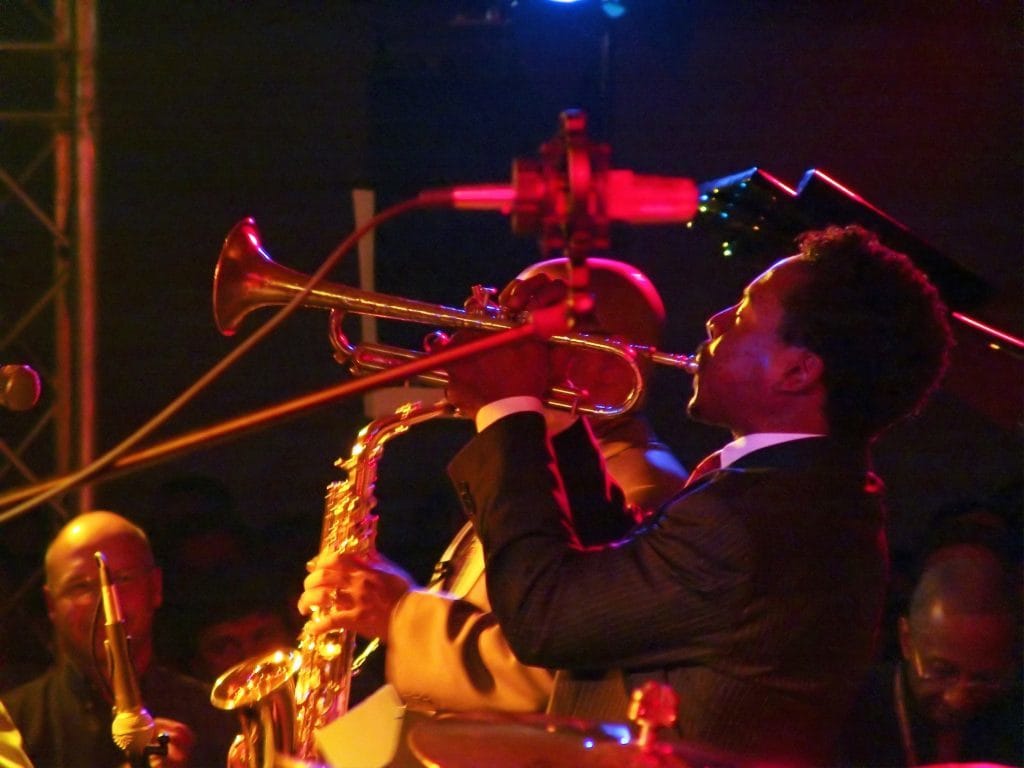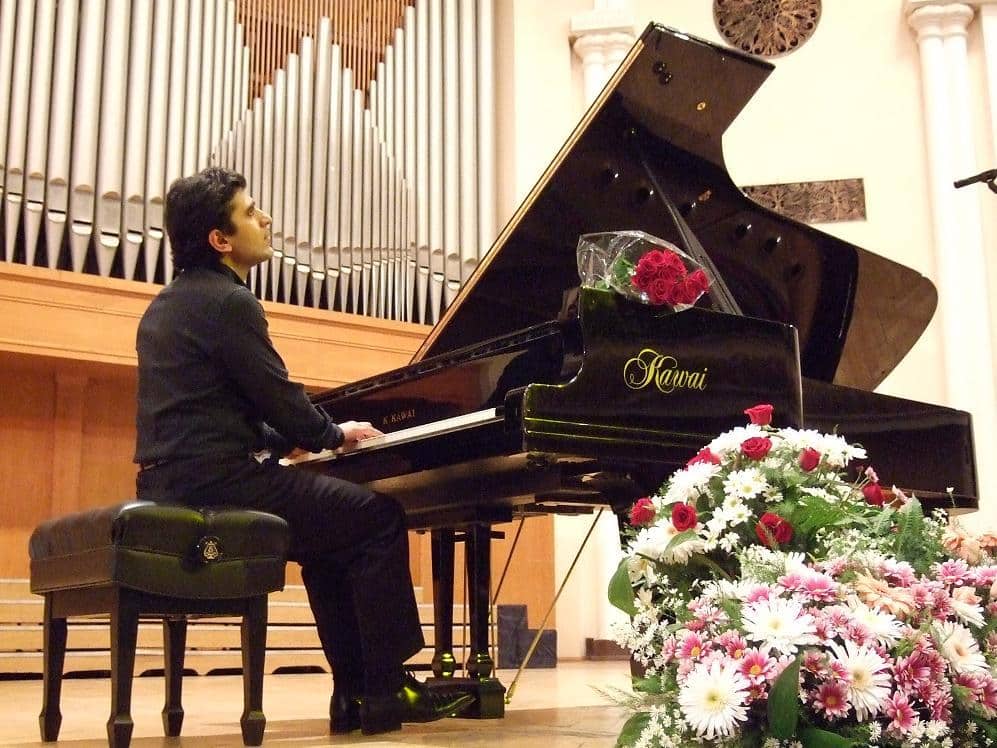Improvisation is definitely a skill to be envied. It is often associated with musical genius, and rightly so. This is because a musician that is improvising will play things that make sense, even though they are not written down or have never before been played.
Improvisation becomes even more magical when two or more musicians improvise at the same time to perform a beautiful spontaneous piece of music. It’s the kind of communication that cannot be put into words, except to be compared to mind-reading.

In most cases, improvisation is a big part of jazz music. In genre, there are elements of each musical piece that are always different, leaving room for the musician’s creativity. On the other hand, classical music is intended to be played the same unless you are the composer. So how is improvisation relevant for a non-jazz musician (and classical musician in particular)?
But what is the practical use of improvisation skills and training in classical music? After all, it’s not like we are going to start extemporaneously composing our own spinoff version of a Beethoven sonata in the middle of a performance. Is it really worth our time and effort? Via Creativity Post
Well, one reason is that it enhances your brain’s ability during performance, as observed in an experiment by the researchers.

In a 2008 study, researchers Charles Limb (an otolaryngologist at Johns Hopkins and faculty member at Peabody) and Allen Braun set out to learn more about what is happening in the brain when engaged in a highly creative activity like improvisation.
So they took six jazz pianists, stuck them in an fMRI scanner (which measures changes in blood flow to different parts of the brain), and had them alternately play passages from memory and improvise to see if there was a difference in neural activity.
In one scenario, they had the pianists play a one-octave C major scale up and down in quarter notes (control condition). Then they asked the pianists to improvise on the scale – though restricted them to only those notes in the one-octave C major scale, and quarter note values here as well (improv condition). Via Creativity Post

Since this kind of improvisation was not the most sophisticated, the scientists also observed the participants under a more advanced scenario. With a jazz quartet accompaniment in the background, the pianists were asked to play a melody from memory for the control experiment. Next, they were asked to freely improvise their own melody with the same quartet in the background for the improve experiment.
The results were quite interesting.
For one, there was a distinctive pattern of both activations and deactivations in certain parts of the brain that occurred during improvisation and playing from memory. What’s cool, is that these patterns were essentially the reciprocal of each other. Meaning, the areas of the brain that were activated during improvisation were deactivated during the play-from-memory condition, and vice versa.
Specifically, a region of the top front part of the brain which is thought to be involved in problem-solving and conscious monitoring of our performance (dorsolateral prefrontal cortex) quiets down during improvisation. Meanwhile, a central region in the very front-most part of the brain (medial prefrontal cortex) which seems to play a key role in self-expression and making up a story or describing a memory becomes more active. Via Creativity Post
These findings suggest that when the part of the brain responsible for self-monitoring and evaluation is deactivated, a musician’s creative juices and spontaneity during performance is enhanced. In fact, recent studies reveal that musicians skilled in improvisation are better placed in terms of their general creativity when compared to non-musicians and musicians with lower improvisation skills.

In addition, we know from studies with athletes, that self-monitoring a well-learned motor skill that usually operates on “muscle memory” often results in choking under pressure. Via Creativity Post
From these findings, we can broadly assume that as musicians become better at improvising, they are better able to switch off their brain’s self-monitoring. This could allow them to perform more accurately in classical music competitions or auditions. While the limits on improvisation in classical music remain, musicians can engage is some improvisation – playing with subtle dynamic nuances, articulation, pulse, sound, among others.
Another interesting takeaway, is that this pattern of activation/deactivation was true across both the simple improvisation task (scales), and the complex task (jazz). So perhaps we don’t have to freak out and be intimidated by the word “improvisation.” It sounds like even practicing improvisation on a very simple, basic level has value, and that the key thing is to simply get started. Via Creativity Post
Featured Image: Image Credit
Watch: Prince William tries playing musical instrument in Assamhttps://t.co/NwmqUClMoH
— Times of India (@timesofindia) April 12, 2016
For the first time, scientists captured images of the brain on LSD, with psychedelic results https://t.co/tzeNPmyvqb pic.twitter.com/vLxNq23ALE
— Newsweek (@Newsweek) April 14, 2016
Related Articles:
TEDX SPEAKER SERIES: THE POWER OF MUSIC IMPROVISATION
“You aren’t just playing a piece of sheet music. From when you start until you end, you have no idea what is happening,” John Anthony, a music teacher at McDonald Local School District, said.
Anthony and fellow musician Ed Davis, an adjunct faculty member at Youngstown State University, are JA bio pic cmykworking together to present a TED Talk in January about the importance of musical improvisation. Via The Jambar
The Music In You – improvisation in music and expressive arts
Benefits and results from the activities are made possible by the creation of the following values:
– Realization of places with protected environment based on respect and hope for the traveling process which is the unique path of improvisation, with no beginning or ending, promoting self expression without any prejudice.
Approaching or re-approaching people using exercise, study and dialogue to the practice of improvisation in order to revitalize and empower one’s own individual and social expressive sphere. Via Webindra
Guthrie Govan’s 10 top improvisation tips
Guthrie Govan is famed for his almost supernatural playing skills. Here, he puts pen to paper and shares 10 essential improvisation tips…
1) Think in phrases
One specific way to apply the ‘speech’ analogy is to think in phrases when you play. Melodic ideas work generally on the basis of grouping several notes together and then leaving a gap – a pause for breath, if you will – and listeners will instinctively respond well to hearing ideas spaced out in this way. Via Guitar Bass

